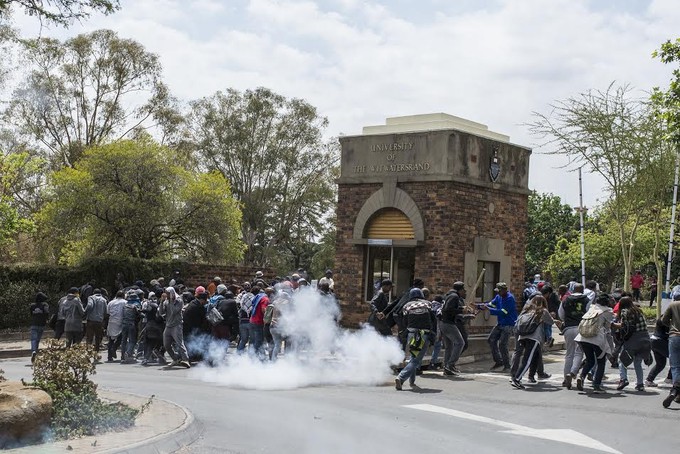The poll at Wits was meaningless
Rights can’t be voted away
The move by Wits University to get students and staff to vote on whether or not the university should continue with lectures was tactically clever but meaningless, argues Alison Tilley. Rights cannot be voted away - that’s what makes them rights
Both sides in the Wits University dispute - those who wanted the university open and those who wanted it closed - claimed to represent a majority. In these circumstances a democratic vote might seem to be a smart move. But last week’s poll at Wits was in many ways misconceived.
We all have a right to basic education. We have a right to further education which the state, through reasonable measures, must make progressively available.
We are also guaranteed the right to dignity and to freedom and security of the person, including the right to be free from all forms of violence. We also have the right to free expression. We have the right to equality.
The state must protect rights. It must in fact respect, protect, promote and fulfill them, and each of these duties brings its own challenges. The state is not only bound to protect people from itself, as the state – it must protect people from each other. Of course, being safe in the street does not mean being safe at home; getting to matric does not mean you can go to an elite university, and having media owned by different companies and the state does not necessarily mean media freedom.
The level of learning and teaching at universities is not the same everywhere and universities are not equally accessible to all. In some places lectures are delivered by people who are privileged and in some not. In some classes what is taught has not been interrogated in 20 years.
But the state is required to ensure the rights of all are respected. You may call a mass meeting, and say what you think. But you may not assault people in order to force them to attend that meeting. You may not damage property in order to draw attention to your meeting. And if you do, it is the role of the state to protect the rights of all to dignity, freedom and security of the person, including the right to be free from all forms of violence from either public or private sources, and the right to free expression and equality.
The state is required, in its full imperfection, to protect all rights, the protester and the non protester. It must provide a fair trial for the person who assaults another student; it must cause the arrest of a police officer who recklessly shoots rubber bullets at fleeing student; and it must protect teaching and learning.
The decision of Wits leadership to call for a vote on whether or not classes should continue seems a perfectly legitimate option, but in fact it is not. A majority vote cannot take away rights. If every single student voted for classes to go on, and voted (say) that fees should be raised so that fewer people could get to university, that vote would not be not a proper one, because it would not be a progressive realization of rights. You can’t vote rights away – that is ultimately what makes them rights.
If a group of people agree to give up their rights in a greater cause, that is a different matter. If I go to jail as part of a campaign of civil disobedience I lose my freedom, but I do it voluntarily for a purpose. If I stop work in a strike with my colleagues to demand a safe workplace, that is my right. If I boycott classes and succeed in persuading my fellow students to do the same, I am entitled to do so. If I refuse anti-retroviral drugs until my comrades are given them, I am entitled to do that.
Rights are won through struggle. They are not won by lawyers, nor by the vote. Most rights have been won after struggle – the right to vote, the right to equality, all have been the product of struggle. Struggle is not about everyone agreeing to something. It’s about an often small, vociferous group of people pointing out an unfair and unjust situation, often at great risk to themselves.
Sometimes the issue is not one to be put to a vote. The rights protected in the constitution should be protected. Just as we might argue for a police presence that is fair and effective in Manenberg or Khayelitsha, we can argue for a police presence on university campuses.
On the one hand, the police must act in the face of illegal and unlawful behaviour, unless rights are to be ignored.
On the other hand, the protests must be allowed to continue, as a sometimes small, but vociferous, group of people argue that spending on higher education is more important than the other things we spend our money on. They can expect push back – it is an issue about which reasonable people may disagree.
But rights cannot be removed, not even by majority vote. You can give up your rights, but they may not be taken from you, neither at the end of a baton nor through a ballot box.
Views expressed are not necessarily those of GroundUp.
Next: Opposing groups protest at Nelson Mandela Metropolitan University
Previous: Cape Town’s universities shut down
© 2016 GroundUp. 
This article is licensed under a Creative Commons Attribution-NoDerivatives 4.0 International License.
You may republish this article, so long as you credit the authors and GroundUp, and do not change the text. Please include a link back to the original article.



